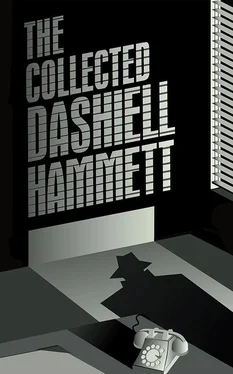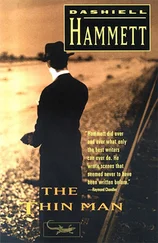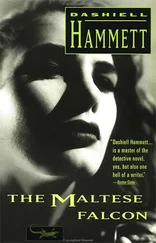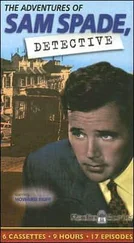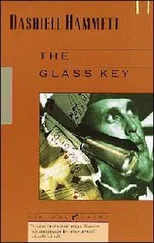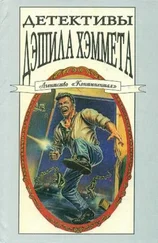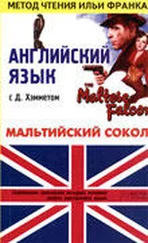The little man winced.
“Aw, Rip! How would I know it? I ain’t been to town for a week, and nobody never comes past here any more.”
“Yeah, I wonder how you would know it.”
Yust walked around the table, to where Owen Sack — with little globules of moisture glistening on his round face — stood, caught him by the slack of his blue shirt bosom and lifted him clear of the floor. Twice Yust shook the little man — shook him with a lack of vehemence that was more forcible than any violence could have been — and set him down on his feet again.
“You knowed where our cache was at,” he accused, still holding the looseness of the shirt bosom in one muscular hand, “and nobody else that ain’t in with us did. The Prohis showed up there this morning and grabbed Lucky. Who told ’em where it was? You did, you rat!”
“I didn’t, Rip! I didn’t! I swear to—”
Yust cut off the little man’s whimpering by placing a broad palm across his mouth.
“Maybe you didn’t. To tell the truth, I ain’t exactly positive yet that you done it — or I wouldn’t be talking to you.” He flicked his coat aside, baring for a suggestive half-second the brown butt of a revolver that peeped out of a shoulder holster. “But it looks like it couldn’t of been nobody else. But I ain’t aiming to hurt nobody that don’t hurt me, so I’m looking around a while to make sure. But if I find out that you done it for sure—”
He snapped his big jaws together. His right hand made as if to dart under his coat near the left armpit. He nodded with slow emphasis, and left the cabin.
For a while Owen Sack did not move. He stood stiffly still, staring with barren blue eyes at the door through which his caller had vanished; and Owen Sack looked old now. His face held lines that had not been there before; and his body, for all its rigidity, seemed frailer.
Presently he shook his shoulders briskly, and turned back to the stove with an appearance of having put the episode out of his mind; but immediately afterward his body drooped spiritlessly. He crossed to the chair, dropped down on it, and pushed the cooling meal back a way, to pillow his head upon his forearms.
He shuddered now and his knees trembled, just as he had shuddered and his knees had trembled when he had helped carry Cardwell home. Cardwell, so gossip said, had talked too much about certain traffic on the Kootenai River. Cardwell had been found one morning in a thicket below Dime, with a hole in the back of his neck where a bullet had gone in and another and larger hole in front where the bullet had come out. No one could say who had fired the bullet, but gossip in Dime had made guesses, and had taken pains to keep those guesses from the ears of the Yust brothers.
If it hadn’t been for Cardwell, Owen knew that he could have convinced Rip Yust of his own innocence. But he saw the dead man again whenever he saw one of the Yusts; and this afternoon, when Rip had come into his cabin and hurled that accusing “They got Lucky this morning” across the table, Cardwell had filled Owen Sack’s mind to the exclusion of all else — filled it with a fear that had made him talk and act as if he had in fact guided the Prohibition enforcement officers to the Yusts’ cache. And so Yust had gone away more than half convinced that his suspicions were correct.
Rip Yust was, Owen Sack knew, a fair man according to his lights. He would do nothing until he was certain that he had the right man. Then he would strike with neither warning nor mercy.
An eye for an eye was the code of the Rip Yusts of the world, and an enemy was one to be removed without scruple. And that Yust would not strike until he had satisfied himself that he had the right man was small comfort to Owen Sack.
Yust was not possessed of the clearest of minds; he was not fitted, for all his patience and deliberation, to unerringly sift the false from the true. Many things that properly were meaningless might, to him, seem irrefragable evidence of Owen Sack’s guilt — now that Owen Sack’s fears had made him act the part of a witness against himself.
And some morning Owen Sack’s body would be found as Cardwell’s had been found. Perhaps Cardwell had been unjustly suspected too.
Owen Sack sat up straight now, squaring his shoulders and tightening his mouth in another halfhearted attempt to pull himself together. He ground his fists into his temples, and for a moment pretended to himself that he was trying to arrive at a decision, to map out a course of action. But in his heart he knew all the time that he was lying to himself. He was going to run away again. He always did. The time for making a stand was gone.
Thirty years ago he might have done it.
That time in a Marsh Market Space dive in Baltimore, when a dispute over a reading of the dice had left him facing a bull-dog pistol in the hands of a cockney sailor. The cockney’s hand had shaken; they had stood close together; the cockney was as frightened as he. A snatch, a blow — it would have been no trick at all. But he had, after a moment’s hesitancy, submitted; he had let the cockney not only run him out of the game but out of the city.
His fear of bullets had been too strong for him. He wasn’t a coward (not then); a knife, which most men dread, hadn’t seemed especially fearful in those days. It traveled at a calculable and discernible rate of speed; you could see it coming; judge its speed; parry, elude it; or twist about so that its wound was shallow. And even if it struck, went deep, it was sharp and slid easily through the flesh, a clean, neat separation of the tissues.
But a bullet, a ball of metal, hot from the gases that propelled it, hurtling invisibly toward you — nobody could say how fast — not to make a path for itself with a fine keen edge, but to hammer out a road with a dull blunt nose, driving through whatever stood in its way. A lump of hot lead battering its irresistible tunnel through flesh and sinew, splintering bones! That he could not face.
So he had fled from the Maryland city to avoid the possibility of another meeting with the cockney sailor and his bull-dog pistol.
And that was only the first time.
No matter where he had gone, he had sooner or later found himself looking into the muzzle of a threatening gun. It was as if his very fear attracted the thing he feared. A dog, he had been told as a boy, would bite you if he thought you were afraid of him. It had been that way with guns.
Each repetition had left him in worse case than before; until now the sight of a menacing firearm paralyzed him, and even the thought of one blurred his mind with terror.
In those earlier days he hadn’t been a coward, except where guns were concerned; but he had run too often; and that fear, growing, had spread like the seepage from some cancerous growth, until, little by little, he had changed from a man of reasonable courage with one morbid fear to a man of no courage at all with fears that included most forms of physical violence.
But, in the beginning, his fear hadn’t been too great to have been outfaced. He could have overcome it that time in Baltimore. It would have required an enormous effort, but he could have overcome it. He could have overcome it the next time, in New South Wales, when, instead, he had gone riding madly to Bourke, across a hundred-mile paddock, away from a gun in the hands of a quarrelsome boundary rider — a desperate flight along a road whose ruts stood perversely up out of the ground like railway tracks, with frightened rabbits and paddy-mellons darting out of the infrequent patches of white-bearded spear grass along his way.
Nor would it have been too late three months after that, in north Queensland. But he had run away again. Hurrying down to Cairns and the Cooktown boat, this time, away from the menace of a rusty revolver in the giant black hand of a Negro beside whom he had toiled thigh-deep in the lime-white river of the Muldiva silver fields.
Читать дальше
